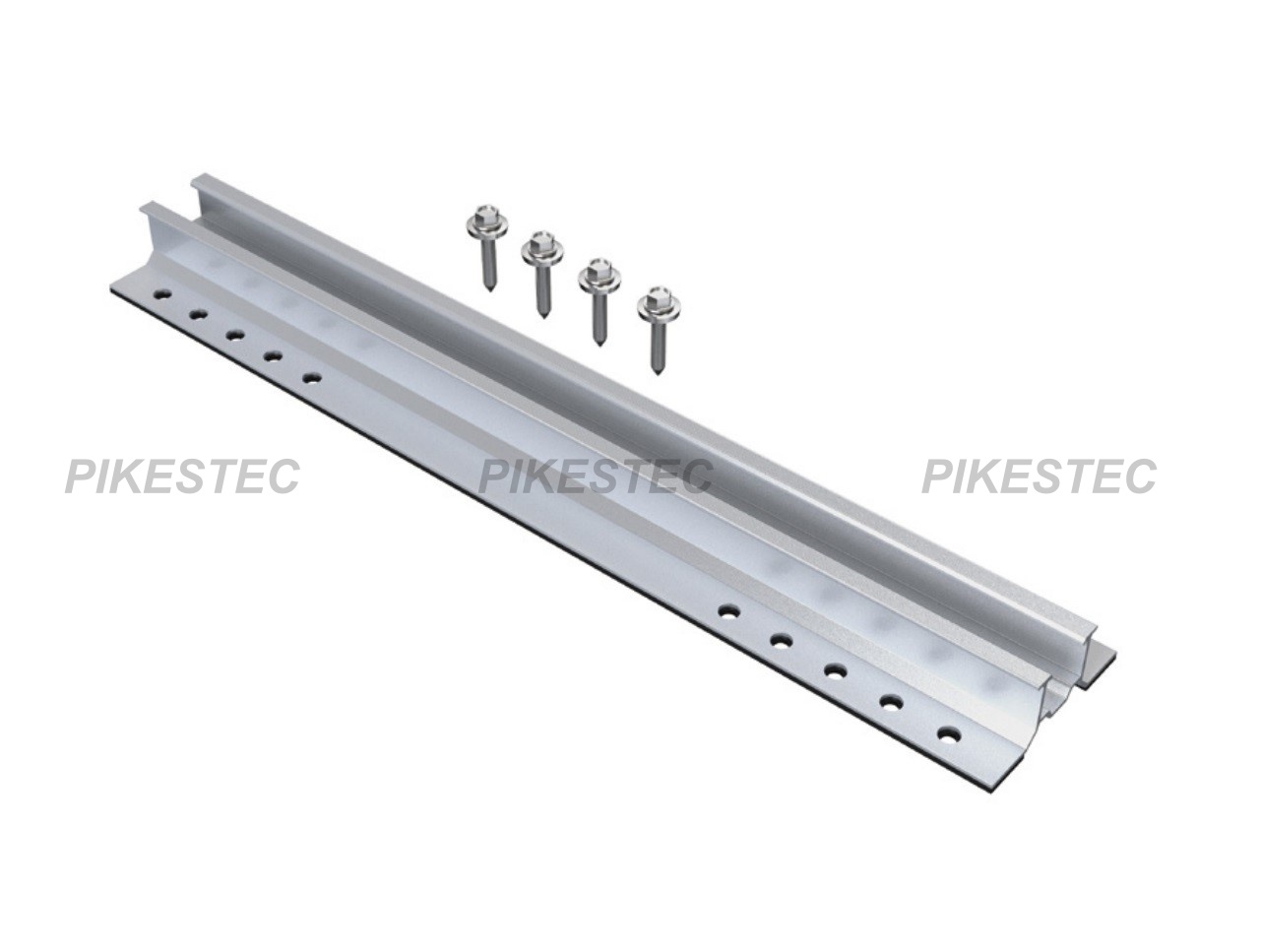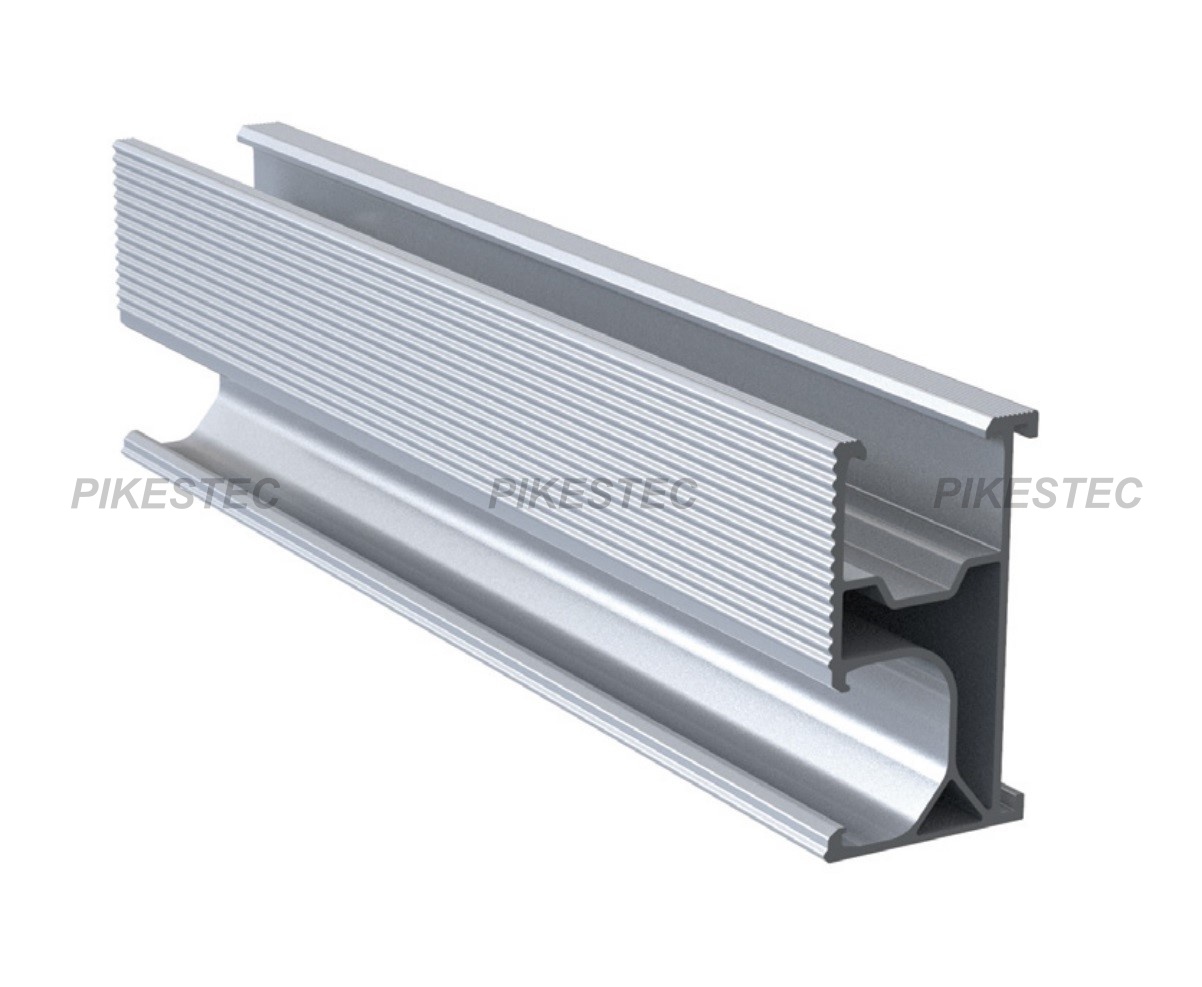You guide to solar carport in 2024
A carport solar mounting system is a type of solar panel installation that combines the functionality of a carport with the benefits of solar energy generation.
Here’s a detailed explanation: What is a Solar Carport? A carport solar mounting system is a structure designed to provide shelter for vehicles while also generating electricity through solar panels installed on its roof. It combines the practicality of a carport with the sustainability and energy-saving benefits of solar power. Key Features like: Shelter for Vehicles: The main purpose of a solar carport is to provide covered parking for cars, trucks, and other vehicles. Solar Panels: The roof of the carport is equipped with solar panels that capture sunlight and convert it into electricity. Structural Design: Solar carports are typically designed to withstand various weather conditions, including heavy snow loads and strong winds. Flexibility: They can be installed as standalone structures or integrated into existing parking lots or garages. Energy Generation: The electricity generated by the solar panels can be used to power the facilities where the carport is located, charge electric vehicles (EVs), or feed back into the grid.
What is a solar carport?
A solar carport is a canopy designed to cover a parking area, ingeniously capturing photons to generate electricity. Although they share some similarities with traditional carports and ground-mounted solar arrays, solar carports boast distinctive advantages that set them apart. Unlike conventional carports, which primarily offer shelter, solar carports serve a dual purpose by generating renewable energy while protecting parked vehicles.
Solar carports are rapidly gaining popularity as a means of charging electric vehicles (EVs) in both public and private parking areas. The potential for installing solar carport structures is enormous; one study suggests that up to 14-20% of a city’s total surface area is occupied by parking lots. Imagine the vast amount of energy that could be harnessed by transforming these underutilized spaces into solar-powered hubs. Not only do solar carports and canopies contribute to energy generation, but they also provide practical benefits such as protection from ultraviolet (UV) light and precipitation, along with convenient charging stations for EVs.
However, the utility of solar carports extends far beyond merely charging electric cars. They can also feed energy into nearby businesses, homes, or the local utility grid, thereby enhancing the overall energy infrastructure. Solar carports are capable of producing energy on par with standard roof-mounted solar power systems, and often even surpass them in terms of efficiency and output.
While roof-mounted solar systems must contend with the limitations imposed by the angle of the roof and potential shading issues caused by obstructions like chimneys, trees, and neighboring buildings, solar carports enjoy greater flexibility. They can be positioned at optimal angles to maximize exposure to sunlight, ensuring that they capture the maximum amount of solar energy possible.
If you are interested in harnessing solar energy and happen to own a car, consider whether investing in a solar carport system might be a wise decision for you. Beyond the environmental benefits, solar carports offer a sustainable and versatile solution that supports both your personal transportation needs and contributes positively to the broader community’s energy landscape.

How do solar carports work?
Pikestec a leading solar provider, put together this white board video, which nicely illustrates these benefits.
Solar carports use the same technology to generate solar energy as a typical ground-mounted or rooftop system. Like ground or roof-mounted solar panels, a solar carport converts the energy of photons (light particles) into electricity, a process called the photovoltaic effect.
When a photon hits a solar panel, its energy causes electrons to flow throughout the solar cells, producing an electric current. The resulting electricity is direct current (DC) power, which is commonly used in battery-operated devices. For household or commercial use, this current is converted into alternating current (AC) with an inverter.
Though solar carports utilize the same technology as other solar configurations, they offer several key benefits. First, solar carports require zero additional land, taking advantage of wasted real estate above a parking space. Second, because solar carports are installed higher than ground-mounted systems, they allow optimal orientation to get the most of the sun’s rays.
Solar carports offer a more efficient and unobtrusive way to gather energy from the sun when compared to ground-mounted systems. If space is an issue for your home or business, a solar carport is a great way to cash in on clean energy in the most efficient way possible.
How much do solar panel carports cost?
Like rooftop or ground-mounted solar, solar carport costs vary depending on the type of solar panel you choose, how much power you want to generate, how much space you want to cover and more.
A commercial solar carport, for example, usually spans one to three rows of vehicles, with many spanning as many as a dozen or more. Commercial solar carports almost always require steel construction, a further cost to installation. But while they come with multimillion-dollar price tags, they also provide multimillion-dollar benefits.
A residential solar carport, on the other hand, is much smaller and cheaper to construct than a large commercial unit. However, on average, they are more expensive than installing a full home solar system. This may be due to the increased labor and materials required for installation for the carport itself. Note that the cost to convert an existing carport to solar will be significantly less than a full solar array, which averages around $20,979 after the federal tax credit.
That said, solar carports can sometimes produce more energy than rooftop systems, as they can be designed to maximize sun exposure.
It’s impossible to provide a precise figure on residential solar carport costs, as prices range wildly based on the size of your system, but most 5kWh solar carports generally run between $11,400 to $18,850 out-the-door, without factoring in any federal or state rebates that can lower costs.

Contect us
A carport solar mounting system is a versatile and sustainable solution that combines the functionality of a carport with the benefits of solar energy generation. It provides covered parking while generating renewable electricity, making it a valuable addition to both residential and commercial properties.





